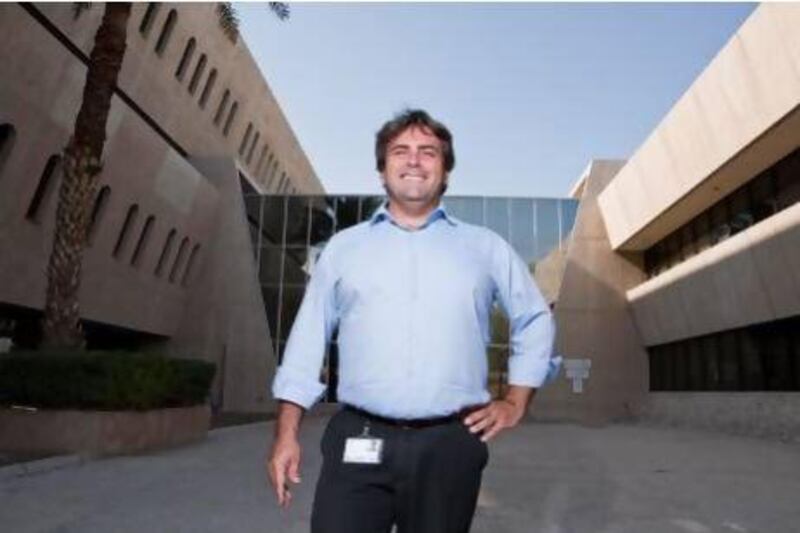DUBAI // Reducing the carbon footprint of businesses is not only crucial to humanity, it also makes sound financial sense.
This was the message delivered by the Dubai Carbon Centre of Excellence (DCCE) during a training programme attended by representatives from the oil and gas industry, aluminium production, telecommunications and hospitality sectors.
"Carbon emissions are the lowest common denominator for all resources - energy, water, supplies, raw materials, time process, travel - and can measure and benchmark resource efficiency at every level," said Ivano Iannelli, chief executive of DCCE.
"Footprinting is essential for all smart, forward-thinking organisations that want to decrease their operational costs by minimising wastage of resources like time, electricity, water, paper, waste and so forth."
Representatives from the Dubai Civil Aviation Authority, Abu Dhabi's Cleveland Clinic, oil company Enoc and property developer Emaar were among the 25 delegates at the event on Thursday.
Participants were introduced to internationally recognised methods of accounting for emissions.
"In most cases, once carbon-measurement structures are implemented, areas of savings can be identified and measurable targets set for all departments," Mr Iannelli told the audience. "In almost all cases this results in considerable savings."
While UAE-based companies are not required to disclose their carbon emissions, a growing number of companies in the country are taking an interest in the issue.
"We notice that companies that already have a good track record in emission reductions are the ones that keep on investing in their staff and want to learn more to improve further," Mr Iannelli said. "They seem to understand the financial benefit."
Daxita Rajcoomar, HSE compliance manager for a telecommunications company, Du, attended the event. While the company is not yet reporting its emissions, it produced its first environmental report at the end of 2011.
"Environmental impacts are becoming more prevalent and we cannot ignore them any more," she said. "We need to understand our footprint and what we can do about it."
The DCCE training programme, which began last year as an awareness initiative, has hosted almost 1,000 people.
For companies, Mr Iannelli said, there are large benefits in training employees, because they can use their operational knowledge to come up with ideas for reducing their company's carbon footprint.
"Some of the most brilliant emission-reduction projects came from employees that were trained on carbon management and had an idea," he said.





